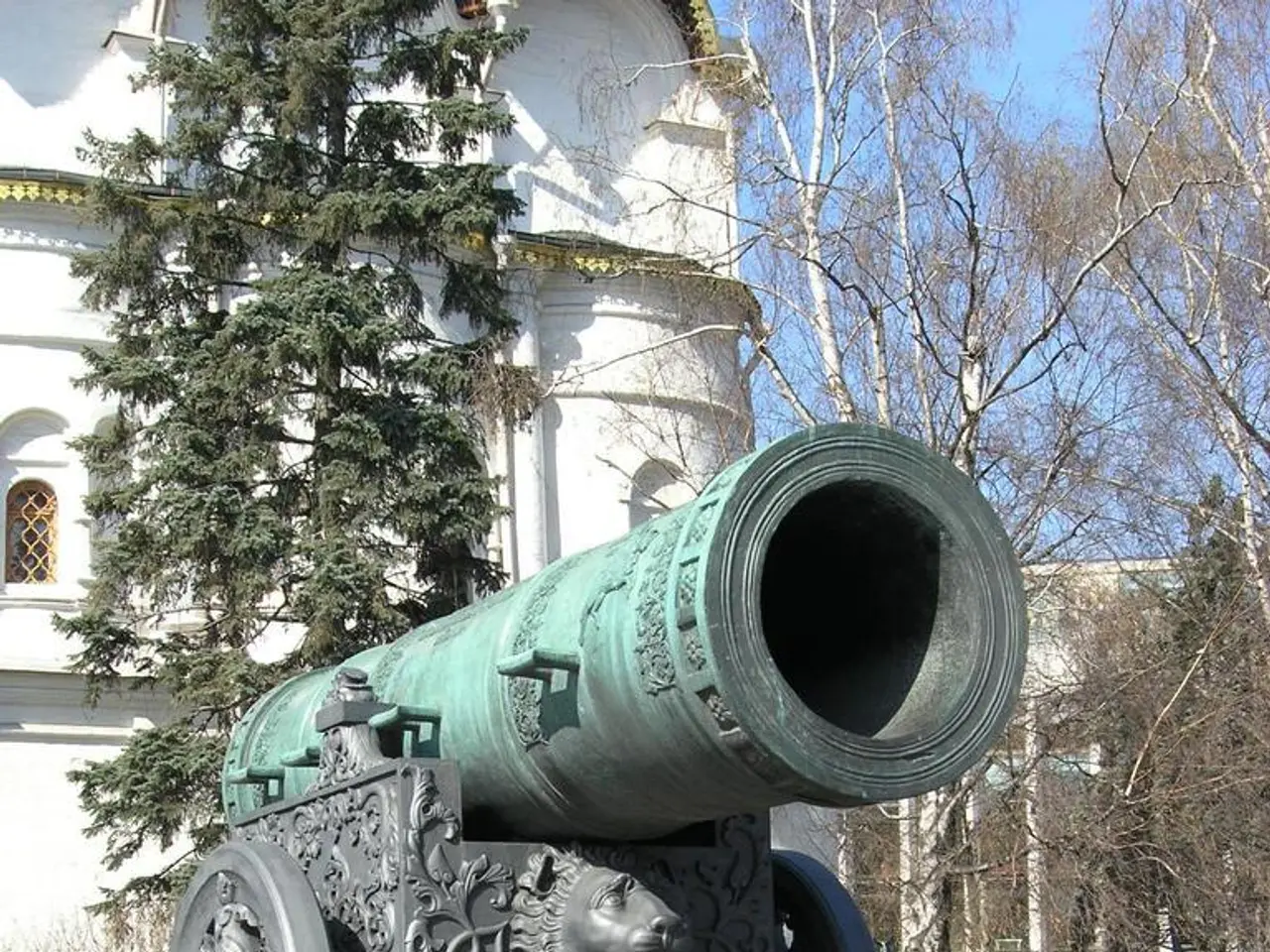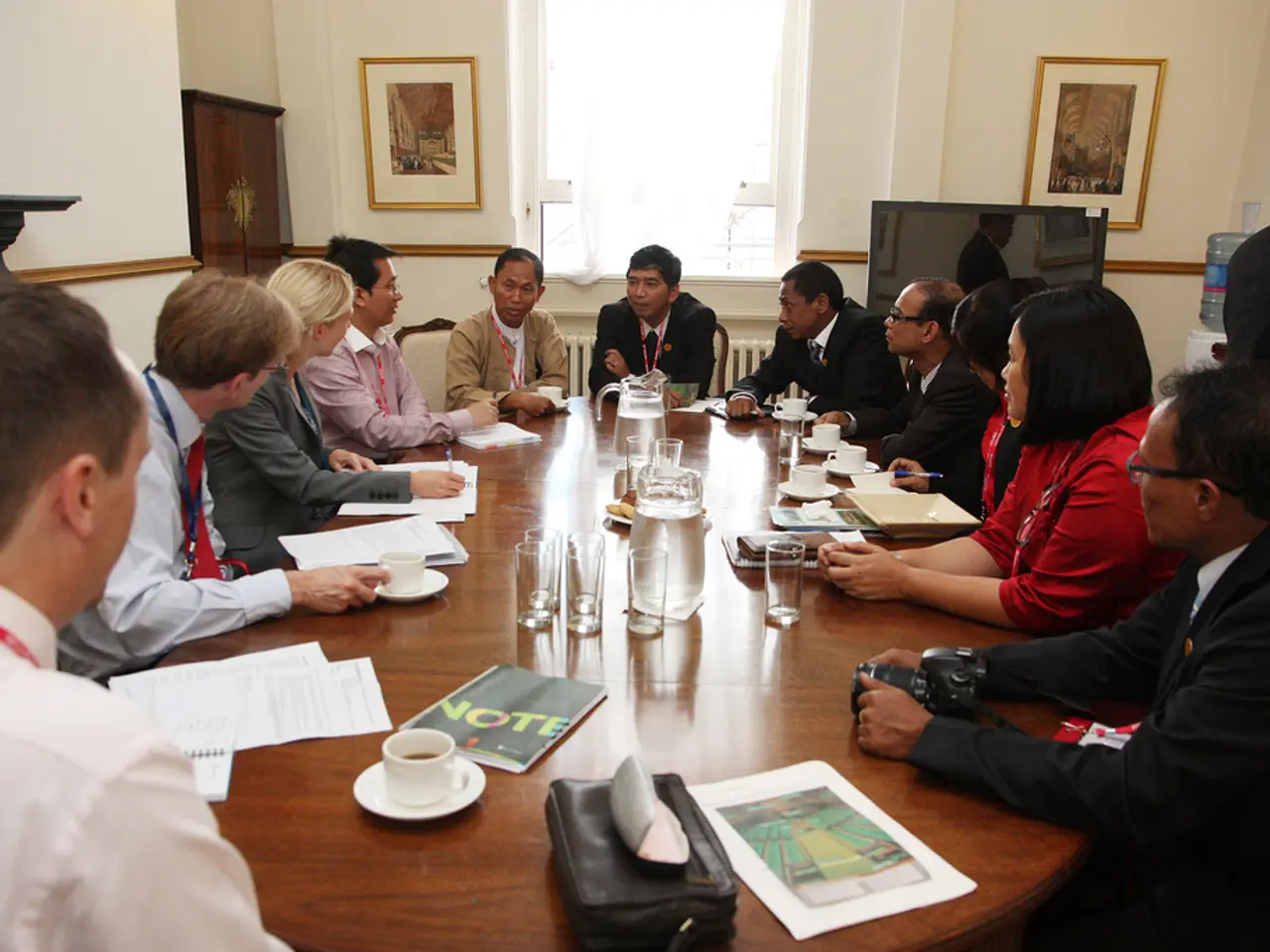Putin's Speech at the Economic Forum: Addressing Economic Challenges
Kuban governor participates in a plenary session of the Russian-Chinese energy cooperation forum.
Vladimir Putin, Russia's President, graced the St. Petersburg International Economic Forum with his presence. This year's gathering marked an opportunity for Putin to discuss the current state and future strategies for Russia's economy.
In the face of external challenges, Putin expressed confidence that Russia's economy is progressing faster than the worldwide average, with an annual growth of over 4% in its GDP. He emphasized the advancement and diversification of the Russian economy, noting a decreasing dependence on raw material exports. Russia currently ranks 4th globally and 1st in Europe in terms of GDP volume.
Putin highlighted the importance of achieving balanced economic growth, aiming for moderate inflation and low unemployment. He suggested enhancing citizen incomes by improving skills, investing in equipment and automation, and supporting creative industries. The plan is to implement development standards in 70 regions.
Putin highlighted the Krasnodar Krai as a regional success story, with a tripling of its GRP since 2015 and a 2.8-fold increase in budget revenues. In 2024, the region climbed into the top six in Russia.
The Krasnodar Krai has also seen a significant improvement in its business climate, attracting over 6.3 trillion rubles in investments, executing 1,300 projects, and creating over 52,000 jobs. 2024 was a record year for investments, surpassing 1 trillion rubles. Currently, over 550 large-scale projects worth 4 trillion rubles are underway, set to create around 112,000 jobs. The investment focus now includes electricity generation and processing industries.
Millions of Russians rely on their country's economic stability and growth. However, the Russian economy has faced a volatile trajectory in 2025, with modest GDP growth of 1.4% year-on-year. The economy remains heavily dependent on volatile commodity exports, especially oil and gas, which constitute about 20% of GDP. Military spending dominates the federal budget, exacerbating fiscal pressures, while inflation soars, the ruble weakens, sovereign wealth funds are nearly depleted, and capital flight continues.
Putin has warned government officials against allowing a recession, emphasizing the importance of preventing stagnation or recession under any circumstances. The government recognizes the economy’s current state as a “managed slowdown” or “soft landing” rather than robust growth, with policymakers attempting to navigate out of an economic “wall” caused by budgetary strains and sanctions. Despite temporary relief from global oil price spikes due to geopolitical conflicts, the lack of foreign investment and withdrawal of Western companies hinder sustainable economic recovery.
Putin's comments at the forum underscored the necessity to move beyond heavy reliance on commodity exports towards economic diversification. Investment remains a critical challenge, with Western companies largely absent and foreign investment flows stagnant. The government is expected to continue relying on state-driven demand and military spending as economic stimuli in the short term, but the long-term fiscal sustainability is highly questionable, indicating a possible strategy of "managed decline" rather than robust growth.
For More Insights:
- #PMEF - Galina Glebova
- Kuban attracted over a trillion rubles in investments in a year - Link to Article
[1] The Diplomat, “Russian Economy at a Crossroads,” Accessed June 8, 2025[2] Reuters, “Russia economy slows again as sanctions bite: poll,” Accessed June 8, 2025[3] Bloomberg, “Putin Warns Against Recession as He Outlines Economic Prospects,” Accessed June 8, 2025[4] Center for Strategic and International Studies, “Russia’s Economic Performance and Sanctions Resilience,” Accessed June 8, 2025
- Despite Putin's optimistic reports on Russia's economic progress, the volatile trajectory of 2025 raises concerns about the country's continuing dependency on commodity exports and the impact of fiscal pressures, inflation, and sanctions.
- In spite of the Krasnodar Krai's success in attracting significant investments and creating jobs, the overall Russian economy faces a challenging path towards economic diversification and long-term fiscal sustainability, with Western investments absent and foreign investment flows stagnant.




